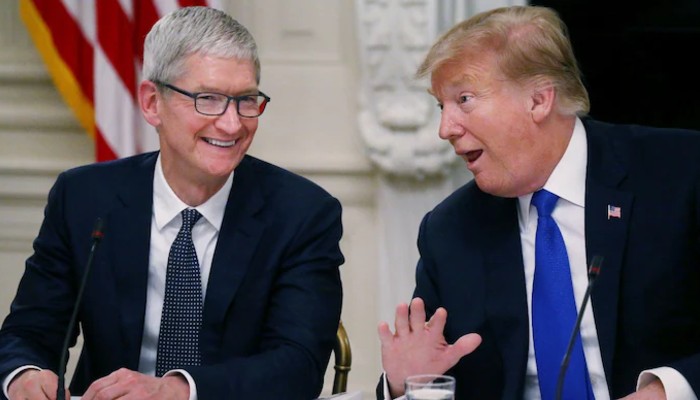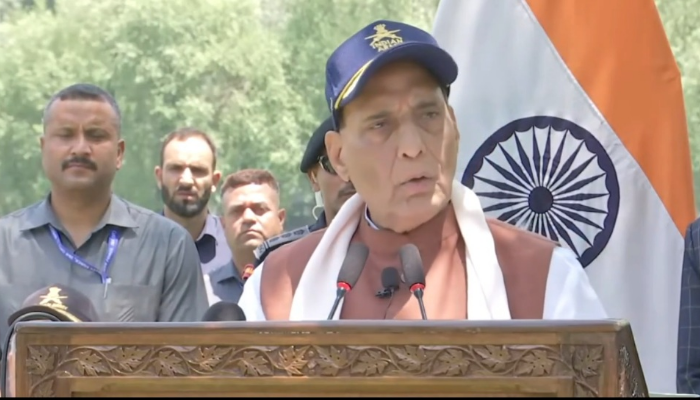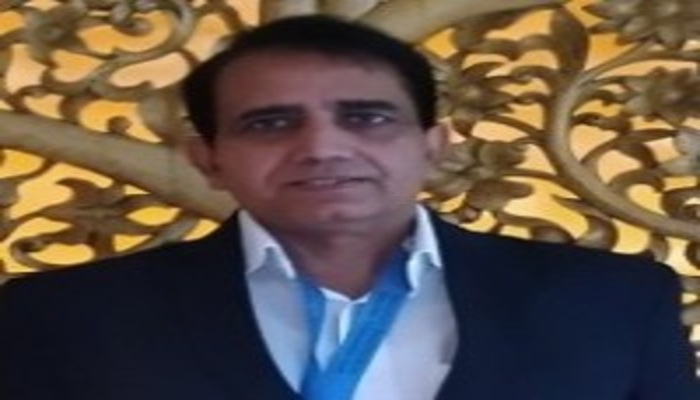Trump Urges Apple to Limit India Manufacturing Amid Shifting Trade Ties

Representative Image
Donald Trump urges Apple CEO Tim Cook to avoid expanding manufacturing in India, as US-China trade thaw raises questions over India’s role in Apple’s supply chain.
Trump urges Apple to reconsider expansion of iPhone manufacturing in India
United States President Donald Trump has publicly advised Apple not to expand its manufacturing operations in India, stating that the move should only proceed if it is aimed at serving the Indian domestic market. Speaking at a business forum in Doha, Trump claimed that India had offered to eliminate tariffs on US goods, but maintained that Apple should focus its production within the United States.
Trump said he had a “little problem” with Apple CEO Tim Cook over the company’s production strategy. “I don’t want you building in India,” Trump recalled telling Cook, adding, “You can build in India if you want to take care of India, because India is one of the highest tariff nations in the world.” He also stated that Apple should not replicate its manufacturing shift from China to India without prioritising US-based production.
Concerns over Apple’s shifting supply chain strategy
Trump’s remarks follow comments by Apple CEO Tim Cook earlier this month, in which he indicated that a majority of iPhones sold in the United States in the current quarter would be produced in India. The shift is part of Apple’s long-term strategy to diversify its manufacturing footprint, particularly in light of recent geopolitical tensions and trade uncertainties involving China.
Apple has significantly ramped up production in India since 2020, following the launch of India’s Production Linked Incentive (PLI) scheme. The initiative provides subsidies to smartphone manufacturers based on incremental sales. According to Indian government data, Apple and its contract manufacturing partners have emerged as the top beneficiaries of the programme, receiving more than 75 percent of the nearly $1 billion disbursed from 2022 to 2025.
The company now produces all its iPhone models in India, including premium variants, through contract manufacturers Foxconn, Tata Electronics and Pegatron. The latter two facilities were recently acquired by the Tata Group.
India’s rising electronics ambitions
India has positioned itself as a viable alternative to China for electronics manufacturing. The government in New Delhi has invested heavily in building infrastructure and offering incentives to attract foreign companies like Apple. In the last financial year alone, Apple assembled iPhones worth approximately $22 billion in India, marking a 60 percent increase compared to the previous year.
A senior Indian official told local media that Apple had not communicated any changes to its investment plans in the country. “India remains a crucial geography for Apple’s global manufacturing ambitions,” the official said.
Trump claims tariff deal with India
During his speech, Trump also claimed that India had offered a deal to waive tariffs on US goods, though no official confirmation has been made by Indian authorities. “They offered us a deal where basically they agreed to charge us literally no tariffs,” he said, without providing further details.
The claim comes against the backdrop of ongoing trade negotiations between India and the United States. Bloomberg has reported that India’s Minister of Commerce and Industry is scheduled to visit Washington between 17 and 20 May for high-level trade talks. The two countries had previously committed to concluding the first phase of a bilateral trade agreement by the autumn.
US-China détente complicates India’s plans
Trump’s comments arrive at a sensitive time for India’s export and manufacturing strategy. A recent easing of trade tensions between the United States and China could influence Apple’s supply chain decisions, potentially slowing its diversification away from China. Although India has benefited from the earlier US tariffs on Chinese imports—estimated at 145 percent on some goods—the new trade deal between Washington and Beijing may reduce pressure on US companies to relocate their operations.
Despite this, Indian officials maintain that Apple’s decision to manufacture in India was not solely based on tariff dynamics. The company began shifting production as early as 2020, well before the latest round of trade hostilities, as part of a broader push to reduce its dependence on a single country for its supply chain.
Diplomatic undercurrents and market uncertainty
Trump’s assertion that he is “not interested” in Apple building in India adds a new layer of complexity to India-US trade relations. His remarks also follow recent tensions over retaliatory tariffs between the two nations, especially after the United States raised duties on Indian steel and aluminium exports. Nevertheless, ongoing trade discussions suggest that both sides are still committed to resolving differences.
The controversy also reflects broader diplomatic tensions. Indian officials have reportedly expressed frustration over Trump’s prior public statements on issues ranging from a ceasefire between India and Pakistan to the use of trade negotiations as a geopolitical tool.
Conclusion
As Apple continues to expand its global manufacturing base, the evolving dynamics between the United States, India, and China will likely shape its long-term strategy. Trump’s remarks may not alter Apple’s existing plans, but they underscore the geopolitical complexities surrounding global supply chains. With production in India already accelerating, and trade talks between major economies in flux, Apple’s next moves will be closely watched by policymakers and investors alike.

India Revokes Celebi Aviation Security Clearance Amid Turkey-Pakistan Ties
India cancels security clearance of Turkish firm Celebi Aviation over national security concerns following Turkey’s support for Pakistan in Operation Sindoor.
|2025-05-16

Microsoft Layoffs Spark Online Debate Over Job Security in Tech and Government Sectors
Microsoft layoffs reignite debate on private vs government job security, with Indian social media users weighing career stability against high tech salaries.
|2025-05-15

India Urges IAEA Oversight of Pakistan's Nuclear Weapons Amid Tensions
India's Defence Minister Rajnath Singh has called on the IAEA to monitor Pakistan's nuclear weapons, citing concerns over safety and responsible handling.
|2025-05-15

Delhi Capitals Face Backlash Over Mustafizur Rahman Signing for IPL 2025
Delhi Capitals’ replacement of Jake Fraser-McGurk with Bangladesh's Mustafizur Rahman sparks #BoycottDelhiCapitals trend ahead of IPL 2025 resumption.
|2025-05-15

India May Cut Tariffs on 90% of US Goods if Deal is Reciprocal: GTRI
New Delhi could drop duties on 90% of US exports if Washington agrees to mutual tariff cuts, says Global Trade Research Initiative.
|2025-05-15




